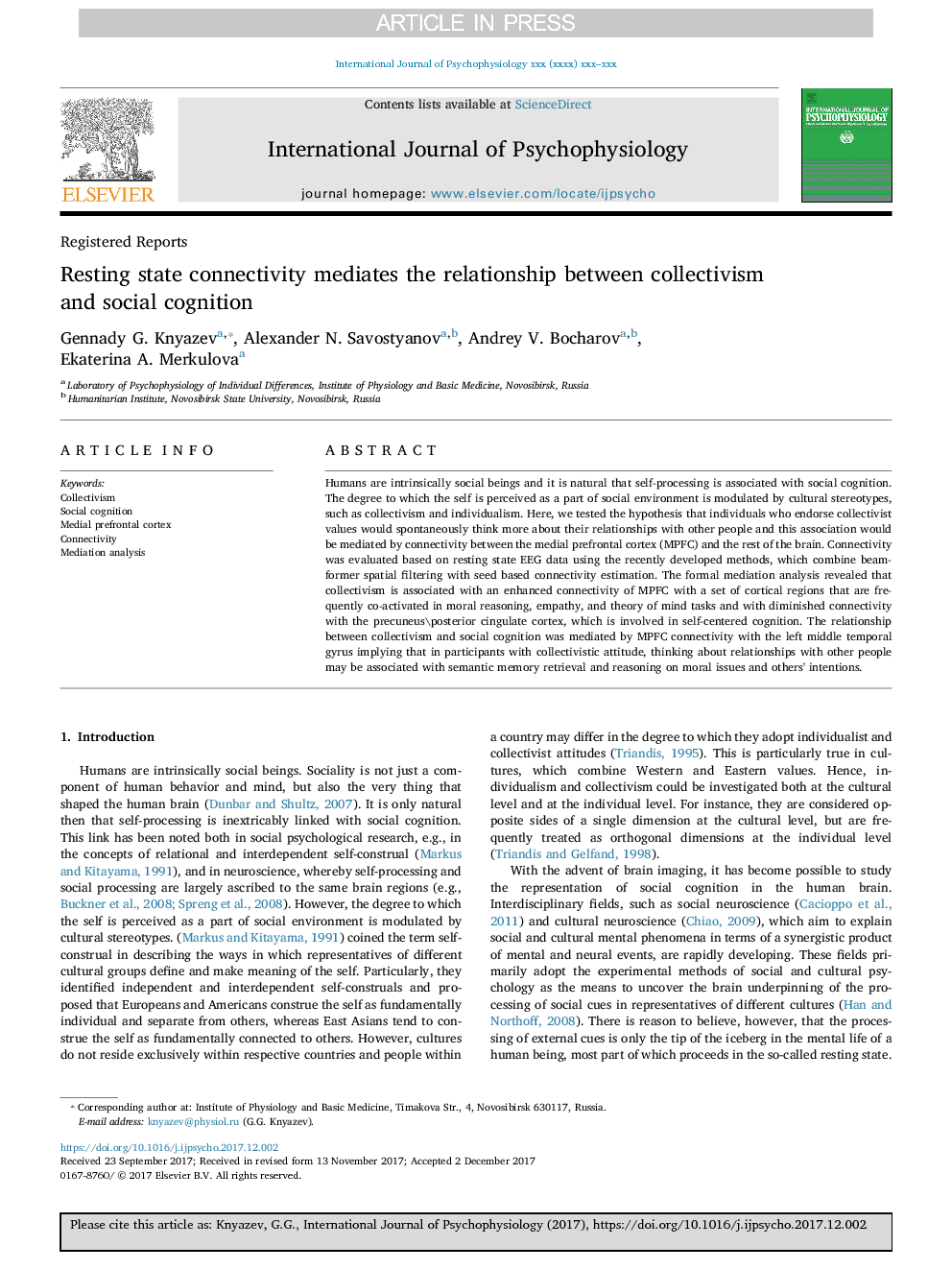ترجمه فارسی عنوان مقاله
اتصال حالت استراحت بین روابط بین کالج گرایی و شناخت اجتماعی میانجی گری می کند
عنوان انگلیسی
Resting state connectivity mediates the relationship between collectivism and social cognition
| کد مقاله | سال انتشار | تعداد صفحات مقاله انگلیسی |
|---|---|---|
| 127175 | 2018 | 8 صفحه PDF |
منبع

Publisher : Elsevier - Science Direct (الزویر - ساینس دایرکت)
Journal : International Journal of Psychophysiology, Volume 123, January 2018, Pages 17-24
ترجمه کلمات کلیدی
کلکسیون گرایی، شناخت اجتماعی، قشر پیشروی مغزی متوسط، اتصال تجزیه و تحلیل میانجیگری،
کلمات کلیدی انگلیسی
Collectivism; Social cognition; Medial prefrontal cortex; Connectivity; Mediation analysis;

